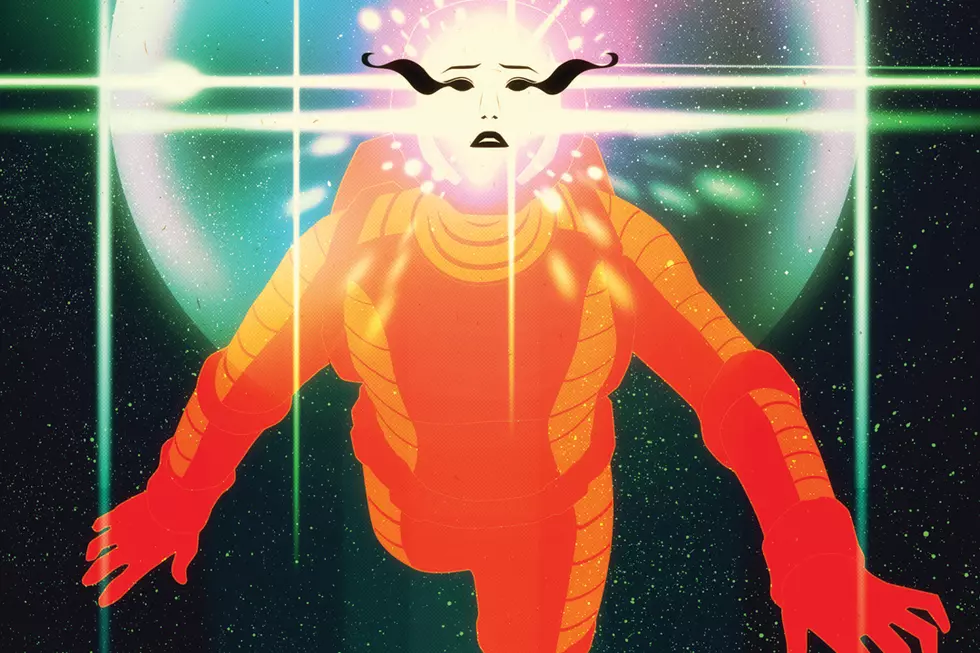
Check Out the First Covers from Marvel’s Hip-Hop Variant Month
Marvel is releasing "Hip-Hop Variant” covers for its books in October, paying tribute to classic rap album covers using the heroes of the Marvel Universe. Mark Brooks takes on Notorious B.I.G.’s classic Ready to Die for his Ant-Man cover, while Mike Del Mundo pays tribute to both Wu-Tang Clan's Enter the Wu-Tang: 36 Chambers for Squadron Supreme #1, and A Tribe Called Quest’s Midnight Marauders for Amazing Spider-Man #1.
The covers released thus far also include variants for Spider-Man/Deadpool #1 by Dave Johnson; The Unbeatable Squirrel Girl #1 by Phil Noto; Invincible Iron Man #1 by Brian Stelfreeze; Howard The Duck #1 by Juan Doe; Ms Marvel #1 by Jenny Frison; Extraordinary X-Men #1 by Sanford Greene, Sam Wilson, Captain America #1 by Mahmud Asrar, and Dr Strange #1 by Juan Doe, and feature tributes to Tyler the Creator, 50 Cent, Eric B. and Rakim, Lauryn Hill, De La Soul and more.
Hip-hop has often drawn inspiration from superhero comics --- MF Doom takes his name from Doctor Doom, Ghostface Killah has gone by Tony Starks, and Method Man by Johnny Blaze; Snoop Dogg has written about Batman and Robin, and The Last Emperor has a track called Secret Wars; and Deadpool, Wolverine, Spawn and the Fantastic Four have all been name-checked by various artists.
Yet superhero comics haven't seemed especially accommodating to comic book artists and writers from the same black community that created and defines hip-hop. Some of the covers in the variant month are the work of black artists, but as far as we know, none of those artists has an ongoing assignment at Marvel.
In a comment to Marvel editor Tom Brevoort on his Tumblr, one reader asked why the publisher was running these variant covers "when absolutely no announced writers or artists on the new Marvel titles, as of now, are black?"
Brevoort's ill-advised response was, "What does one have to do with the other, really?" He later apologized for responding "quickly and curtly," but the exchange thankfully inspired considered commentary from other quarters. Most notably, Image Comics' David Brothers (also formerly of this site, and writing for himself rather than for Image) observed, "you can’t celebrate and profit off something without also including the group that you’re profiting off the back of." His comments are worth reading in full.
The absence of black creators --- and the shortage of women, LGBT people, and other people of color among the ranks of Marvel freelancers --- is all too noticeable at Marvel, especially when its line-wide relaunch in October goes hand-in-hand with this variant cover promotion. If Marvel wants to participate in a diverse culture, as these covers suggest, we hope it can do so by opening its doors a lot wider.
Check Out Some Strange and Surprising Marvel Comics Facts
More From ComicsAlliance




![Sith Versus Rathtars In ‘Star Wars: Darth Maul’ #1 [Preview]](http://townsquare.media/site/622/files/2017/01/Darth_Maul_1_Featured.jpg?w=980&q=75)




